- Home
- Dustin Stevens
The Subway Page 4
The Subway Read online
Page 4
Giving the man nothing more than a tertiary glance, Baxter nodded before settling his gaze on the other man in the room, the very reason he was there.
Eric was his older brother by just two years in terms of the calendar, though many more than that seemed to separate them on terms of life experience and even responsibility. Having lost their parents while both in their mid-twenties, Eric had seized the reins for the family, building an enterprise with the inheritance that was left behind.
Much larger than Baxter, Eric resembled a small bear sitting on the far side of the table, his mane of hair thick, just starting to gray, only a bit of stubble covering his jaw.
It also appeared he had spent some time working out on the inside, his chest and shoulders larger than Baxter remembered.
“Eric,” he said, unable to stifle a smile. Taking a step forward, he moved as if he might hug his brother, at the very least shake his head, cut off only by the mechanized voice piped through the intercom stating, “No touching the prisoners.”
Matching the smile, Eric flicked a glance up to the speaker, letting his annoyance flash, before moving his attention back down to Baxter.
“Little brother, it’s good to see you.”
“Good to see you, as well,” Baxter replied.
Nodding, Eric motioned to the chair on the opposite side of the table. “Please, have a seat.”
Doing as instructed, Baxter slid down on the hard plastic, the corners of it biting into his lower back, though he didn’t let on in the slightest.
Not on a day when there were much more important matters to dwell on.
“How you been?” he asked. “You look good.”
“He’s good, I’m good, we’re all good, thanks for asking,” Rothman answered, inserting himself back into the conversation, drawing the attention of both brothers his way. Glancing between them, he added, “Listen, fellas, I don’t mean to break up the family moment here, but I’m due in court across town soon.”
Casting a quick glance over to Eric, Baxter could see a similar sentiment to what he was feeling cross over his brother’s face, though he didn’t dare press it.
For what they were paying Rothman, it would be assumed that he would sit and let them play catch-up for as long as they wanted.
At the same time, he wasn’t the most sought-after defense attorney in the city for nothing.
“So,” he said, raising his thick hands to the table and flopping them down, lacing his fingers together, “I’ve brought us together here today to prepare for Eric’s upcoming parole hearing. It took a damn Act of God, and some serious bullshitting on my part to make it happen, but we’re on the books.”
The news had come down a few weeks before, something Baxter still couldn’t quite believe, his inside seizing slightly at the mere mention of it.
“Does that mean they’re giving us a hearing, or we actually have a shot at this thing?” Eric asked.
“This the government we’re talking about here,” Rothman answered. “They wouldn’t be giving us a hearing unless there was a shot.”
Leaving the words to hang in the air a moment, he waited as the brothers exchanged a glance.
“But we’ve got to be smart about it,” Rothman pressed. “Just going in and playing the whole repentance angle isn’t going to be enough. We need something that fundamentally alters the foundation of the case.”
Again, the two brothers looked to one another, not bothering to go back to Rothman, allowing their gaze to linger as they seemed to communicate in silence.
That very thing was something they had discussed on Baxter’s previous visit.
Something that had just recently started to bust open.
“I might be able to help with that.”
Chapter Ten
The hope for a few hours of rest in front of the air conditioning unit had turned into five, a far larger chunk than Radney Creel had anticipated. The moment his eyes popped open, he could tell by the angle of the sun outside that it was later than he wanted, his mind instantly into motion.
Rising from his spot on the floor, his back and legs itchy from the thick carpet, he took up a t-shirt and boxers from the pile by the door. Stepping into them, he emerged in the kitchen a moment later to find Elijah Pyle still seated at the table, a fresh cigar stuck between his teeth, a second one resting on the lip of the ashtray beside him.
Though, to his credit, that one didn’t appear to be lit.
Leaning forward so his elbows rested against the front edge of the table, his tank top had been stripped away, revealing a chest of neon white, the lack of any hair a stark contrast to the thick spread on his arms.
In his hands were a barrel brush and one of his prized Wilson Combat X-9 handguns, a small bottle of gun oil by his wrist, the smell of it mixing with the cigar smoke to make for a noxious mix in the small space.
“Morning, sunshine,” Pyle said, glancing up for a moment before returning to his work.
“More like afternoon,” Creel replied. “Why the hell didn’t you wake me?”
A crease appeared between Pyle’s brows as he continued working on the weapon, using his tongue to push the cigar over to the side of his mouth.
“Not my job.” Whisking at the interior of the barrel for another moment, he jerked the brush free and peered inside before setting both down before him. “Thanks for putting on some damn pants, too. Next time I see that thing out, I’m taking it off.”
Feeling a hundred different responses come to the fore, Creel chose not to bother with a single one.
Time and again he had encountered men like Pyle, knowing it wouldn’t lead anywhere he particularly wanted to go.
“You talk to the old man yet?” Creel asked.
“Not my job, either,” Pyle responded, shaking his head slightly. “He expecting us?”
Three hours earlier perhaps, but now that he was up, Creel would handle the call himself.
Yet another thing he had learned in his short time with Pyle.
“I got it,” Creel replied, already turning back to the room from which he’d come. Behind him, he heard Pyle make a comment about asking for a second a/c unit, something so inconsequential he didn’t bother waiting to hear the full extent of it.
If it wasn’t the air conditioner, it would be something else.
It always was.
A threadbare path had been worn into the carpet of the hallway, the plywood under it bowing slightly beneath his weight as Creel moved forward. With each step, the smells of the kitchen receded, replaced by cat urine and something else he couldn’t quite place.
Poking into the living room for a moment, he stopped just long enough to snag his phone from the floor by where he’d been sleeping, a damp silhouette on the carpet like a crime scene chalk outline showing his exact position.
Shaking his head, both at the oppressive heat outside and the subpar accommodations within, Creel moved back into the hallway, past the bathroom and first bedroom to the far corner of the house. Pushing through the closed door, he stepped inside, the intense heat pulling sweat instantly to his skin.
Ignoring it, he closed the door, the reason for his choosing the room becoming obvious as all sound from the rest of the house fell away.
In its stead was nothing but still silence and the rancid smell of hot piss.
Setting his phone to speaker, he pushed the first speed dial and waited as three tones echoed through the room. Holding it at waist height before him, he paced a small circle around the space, his gaze focused on nothing but the phone.
Ten seconds later, it was answered.
“Is it done?”
The voice was low and thick, a trace of an accent present, the speaker a native Georgian through and through.
“It is.”
“Today?” the man asked.
“Early this morning,” Creel replied. “Before dawn.”
To that, there was a brief pause. “And you’re just now calling?”
The insinuation clear, Creel s
queezed his eyes closed, feeling the salty sting of sweat in them.
“Had to stick around and see who showed up,” he replied.
A spasm of violent coughing erupted from the other end, the sound beginning wet and phlegmy, giving way to thick and coarse. Ending with a mighty throat clearing, when the man spoke again, his tone was much lighter.
“So who showed?”
“Nobody really,” Creel replied. “Local sheriff’s department. We’ll keep an eye out, see who else happens by.”
This time, the first response was a grunt, the standard reply when the old man needed a minute to process.
“The other thing,” he said after a full moment, “how’d you leave it?”
“Exactly as we talked about,” Creel replied.
“To the letter?”
“Exactly as we talked about,” Creel repeated.
Coming from anybody else, the question might be viewed as an insult. In this case, he knew it had nothing to do with questioning his abilities, the old man’s focus on their stated goal and nothing more.
“Good,” he eventually responded. “Stay on it, keep me updated on whatever you see or hear.”
There was no need to give the directive, Creel already intimately aware of such a thing.
Just the same, he played along, knowing it was what Vic Baxter wanted to hear.
“You got it.”
Chapter Eleven
The interior of the kitchen was no more than a dozen feet in either direction, providing just enough room for the trio of criminalists clad in white to move about the space. Silent and plodding, they worked in concert, each making efforts to move in circles around the pool of blood encrusted into the rug on the floor.
After more than six hours, the surface of it was dried almost black, a combination of the saturation of the sanguineous liquid and mildew starting to form. Any moment flies would be arriving in droves, an eventuality only cut off thus far by every window and door in the place being shut tight.
A fact that had raised the temperature inside the cabin to triple digits.
Relegated to the front living room, Talula Davis stood with her hands resting on either hip, her body square to the open doorway into the kitchen, watching the criminalists go about their work.
Beside her, Sheriff Arnold Charbonneau rested his forearms across his prodigious stomach, the surface providing an easy shelf for his limbs.
No more than a half hour present, already his tan uniform shirt was soaked with sweat, as was the front of his light brown hair. Droplets could be seen forming along the front tips of his bushy mustache, threatening to drip down with each word he spoke.
“Okay,” he said, “walk me through this one more time.”
In the period since finding the body, Davis had been through it at least a handful of times. Beginning with Tanner over dispatch, she had done the same with the medical examiner and the crime scene investigators, units from Gatlinburg managing to make it down long before the Sheriff could be bothered to show.
Something each of them had commented on, coupling with everything else about the morning to make Davis wish she was still back in her basement, pounding away at her punching bag.
Just an hour past noon, and already she could tell it was going to be a day needing a second workout for sure.
“Responded to a call from dispatch this morning saying we had been summoned out here to the lake,” Davis intoned, her voice detached, a direct result of rote repetition. “Was not even yet onsite when I was flagged down by Peg Bannister who pointed me to this cabin and mentioned the presence of blood and a body.”
“Hmm,” Charbonneau said, nodding. “And you didn’t think to call for backup at that point?”
“Dispatch mentioned a body when they called me,” Davis replied. “I assumed I was the backup.”
The comment out before she even realized it, Davis flicked a glance over to Charbonneau, seeing a flush of red rise to his cheeks. Pushing past before he could respond, she added, “So I came up the driveway, announced myself, knocked on the front door, peeked in the windows.
“Wasn’t until I came around the back that I saw the bloody prints on the door and the body on the floor.”
“And that’s the point where you called for backup,” Charbonneau inserted, an edge creeping into his tone.
Shifting her attention toward him, Davis bit back everything she was thinking, the litany of responses she would love nothing more than to lob at the man. In their stead, she said, “It was.”
Raising a thick paw to his face, Charbonneau wiped the sweat from his mustache, matting the wet hairs against his top lip, before wiping it on the side of his khaki slacks. “But you didn’t wait for them to arrive?”
“No,” Davis replied. “I didn’t know if the person visible was alive or not, in need of medical assistance, so I entered.”
Snapping his attention her direction, Charbonneau let his eyes bulge, his face coming a few inches closer toward her.
“You didn’t know if the man was alive or not? Jesus Christ, did you see the state of that guy?”
Knowing already the insinuation, the point that was trying to be made, Davis swallowed down any verbal lashing. Not only was she the newest in the department, she was also the only female in the bunch, and half Native American at that. The reasons for them to dislike her were already plentiful.
There was no need to add insubordination to the list.
“He was lying face down when I arrived,” Davis said. “Given the angle of the door and the positioning of his body, I could only see that he was prone and some blood had leaked onto the carpet.
“The severity of it was obscured from view.”
Twisting his mouth into a curl, Charbonneau looked at her, his appearance making it clear he couldn’t tell how much of her story to believe.
Just as clear was the rising color on his cheeks, every impression being that he was looking for any excuse to fly into her.
A choice Davis was not about to give him, especially with their current audience, the slower pace and increasing sideways glances of the criminalists not lost on her.
“Once I turned the body and determined he was, in fact, deceased, I secured the scene and waited for backup.”
Another moment passed as Charbonneau stared, seemingly lost in internal debate, before he turned and regarded the spread in the kitchen again.
“Where is Adams now?”
“The Deputy escorted Ms. Bannister and her dog home,” Davis replied.
For the first time, Charbonneau finally seemed to shift his attention from dressing her down. Unfolding his arms, he looped his thumbs into the rear pockets of his pants and walked to the doorway. Leaning a shoulder heavily against the frame, he peered inside the room, watching as the trio of workers continued to move about.
In the two years Davis had been with the department, it was only the second time they had been forced to call on aid from Gatlinburg.
“Any idea who the guy was?” Charbonneau asked.
“No ID on his person,” Davis replied. “No chance at a visual identification.”
From the rear, she could see him nod, a roll of fat bunching and unfurling at the base of his skull from the movement.
“Any idea who owns the cabin?” he asked.
“Not as yet,” Davis replied.
A grunt was the immediate response, the tenor of it making the intent behind it quite clear.
“Murder weapon?” he asked.
“Examiner said initial theory was a large knife with a serrated blade, but they won’t know for certain until she gets him back to the lab and does an extensive workup.”
“Any of the neighbors see anything?” he asked, rattling off the questions one after another.
Knowing full well they were meant only to be degrading, to give the impression that she wasn’t handling things competently, Davis refused to rise to the bait.
“Not that I’m aware of, sir. I’ve been here since called on this morning, co
vering the scene.”
So badly she wanted to add that she had been there waiting for him to show up but forced herself to remain quiet, not to provoke what could fast become a volatile situation.
Pushing himself away from the door frame, the man turned, his posture accentuating his heavy build.
“Well then, I think it’s time you get started, don’t you?”
Chapter Twelve
For all the open vitriol that Marshal Lipski and I had for one another, for every bit of open loathing that existed, there was one single silver lining. A perk long ago worked into our arrangement, it was the one thing I absolutely demanded upon agreeing to give testimony.
My reasoning at the time was sort of tongue-in-cheek, a younger man trying to find the humor in an otherwise ugly situation. Sitting on the far end of the conference room, squirreled away in an unmarked government facility free of windows or daylight or any of the other trappings of basic humanity, I read over the proposal in front of me before turning and regarding the cadre of suited marshals sprawled throughout the room.
“I mean, this all sounds okay,” I remember saying, “but even prisoners get a phone call.”
The joke had fallen flat, an outcome I had at the time mistaken for my delivery being a bit off.
Only through years of interaction with these people did I come to realize it had nothing to do with me, pointed entirely at their inability to communicate in anything but the strictest, most literal of terms at all times.
The upside to the broken conversation had been to open a new negotiation about the possibility of some tiny modicum of contact with the outside world.
Had I known at the time what a production it would become, I likely would have begged off. How one simple throwaway line had ended up including sign-off from the Director of the Witness Protection program and a pair of lawyers from the Department of Justice, I won’t pretend to understand.
What I did know was it gave me one lifeline, one moment a month when the strictures that oversaw my phone and internet usage were lifted and I was able to phone who I wanted.
I still had to be careful about what I said, and speak largely in code even at that, but after six years, luckily the voice on the other end of the line knew how to decipher my babble.

 Liberation Day - A Thorn Byrd Novel
Liberation Day - A Thorn Byrd Novel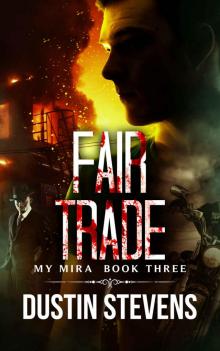 Fair Trade
Fair Trade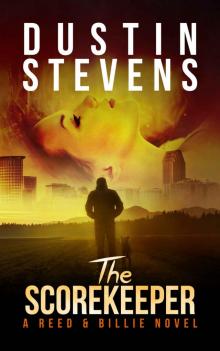 The Scorekeeper
The Scorekeeper Wild Fire: A Suspense Thriller (A Hawk Tate Novel Book 6)
Wild Fire: A Suspense Thriller (A Hawk Tate Novel Book 6) Ham
Ham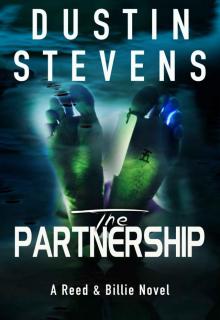 The Partnership
The Partnership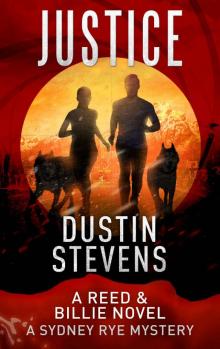 Justice
Justice The Subway
The Subway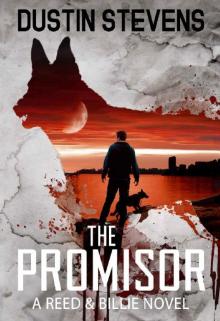 The Promisor: A Suspense Thriller
The Promisor: A Suspense Thriller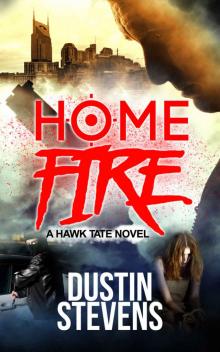 Home Fire: A Suspense Thriller (A Hawk Tate Novel Book 5)
Home Fire: A Suspense Thriller (A Hawk Tate Novel Book 5) The Bear
The Bear Battle Cry
Battle Cry Warning Shot
Warning Shot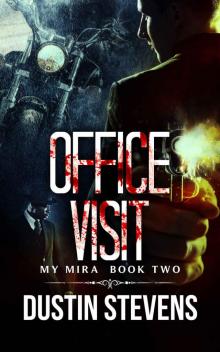 Office Visit
Office Visit The Kid: A Suspense Thriller (A Reed & Billie Novel Book 3)
The Kid: A Suspense Thriller (A Reed & Billie Novel Book 3)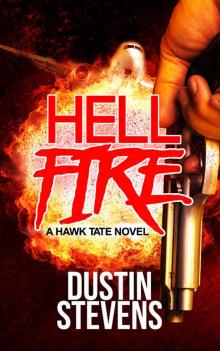 Hellfire: A Suspense Thriller (A Hawk Tate Novel Book 4)
Hellfire: A Suspense Thriller (A Hawk Tate Novel Book 4) Motive ; One Last Day ; Going Viral
Motive ; One Last Day ; Going Viral The Subway ; The Debt ; Catastrophic
The Subway ; The Debt ; Catastrophic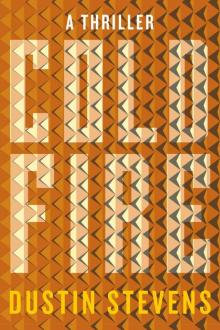 Cold Fire
Cold Fire Dead Peasants (Zoo Crew series Book 2)
Dead Peasants (Zoo Crew series Book 2) Thriller Box Set One: The Subway-The Debt-Catastrophic
Thriller Box Set One: The Subway-The Debt-Catastrophic The Boat Man: A Suspense Thriller (A Reed & Billie Novel Book 1)
The Boat Man: A Suspense Thriller (A Reed & Billie Novel Book 1) The Zoo Crew (Zoo Crew series Book 1)
The Zoo Crew (Zoo Crew series Book 1) Twelve
Twelve The Good Son: A Suspense Thriller (A Reed & Billie Novel Book 2)
The Good Son: A Suspense Thriller (A Reed & Billie Novel Book 2) The Boat Man: A Thriller (A Reed & Billie Novel Book 1)
The Boat Man: A Thriller (A Reed & Billie Novel Book 1) Scars and Stars
Scars and Stars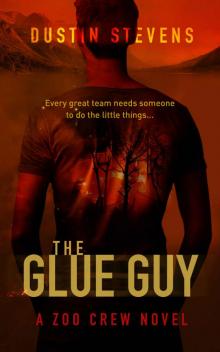 The Glue Guy: The Zoo Crew Series Book 4
The Glue Guy: The Zoo Crew Series Book 4 Four
Four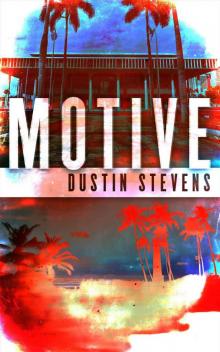 Motive
Motive 21 Hours
21 Hours Krokodil
Krokodil Ohana
Ohana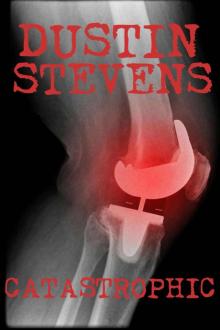 Catastrophic
Catastrophic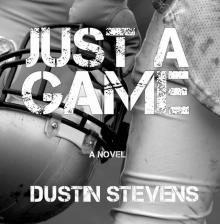 Just A Game
Just A Game Quarterback
Quarterback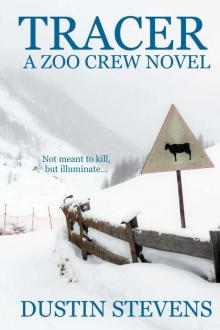 Tracer
Tracer Fire and Ice: A Thriller (A Hawk Tate Novel Book 3)
Fire and Ice: A Thriller (A Hawk Tate Novel Book 3)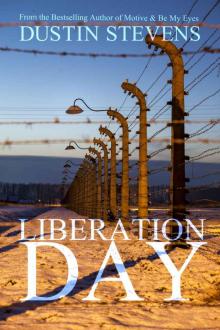 Liberation Day
Liberation Day